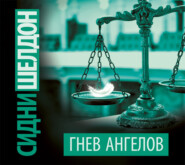По всем вопросам обращайтесь на: info@litportal.ru
(©) 2003-2025.
✖
Sidney Sheldon & Tilly Bagshawe 3-Book Collection: After the Darkness, Mistress of the Game, Angel of the Dark
Автор
Год написания книги
2018
Настройки чтения
Размер шрифта
Высота строк
Поля
Mitch said angrily, ‘That’s ridiculous. Who’s Sally-Ann anyway?’
Helen gave him a withering look. ‘She’s your daughter’s best friend. Sally-Ann Meyer? She and Celeste have been joined at the hip for the last two years, Mitch.’
‘Really?’
‘Really.’
Mitch felt bad. He wanted to spend more time at home. The problem, as he told Helen, was that the bad guys never took a vacation. Muggers, junkies, gang leaders, rapists, every day they walked the streets of the city, preying on the vulnerable, the helpless, the poor. Preying on people like my father. Being a detective was more than Mitch’s job. It was his vocation, the same way that being a mother was Helen’s. And he was great at it.
The divorce came like a bolt from the blue. Mitch got home one night expecting to find his supper on the table. Instead he found a sheaf of legal papers. Helen and Celeste were gone. In hindsight, he realized the writing had been on the wall for a long time. Ever since the economy imploded, crime in the city had been steadily rising. Then Quorum collapsed, unemployment in New York spiked, and overnight a bad situation got twenty times worse. Mitch Connors was on the front line of a war. He couldn’t just lay down his gun and be home in time for dinner.
Well, maybe he could. But he didn’t. By the time he realized the toll his dedication had taken on his marriage, it was too late.
The NYPD had become Mitch Connors’s life. But that didn’t mean he loved it. Guys joined the force for different reasons, not all of them laudable. Some reveled in the authority that the badge and the gun gave them. Power trippers. They were the worst. Others were looking for a sense of camaraderie. To those guys, the NYPD was like a softball team or a fraternity. It filled a void in their life that marriage, family and civilian friendships couldn’t fill. Mitch Connors understood those guys, but didn’t count himself among their number. He hadn’t become a cop to make friends, or to lord it over his fellow citizens. He’d joined up as a form of atonement for his father’s death. And because he still believed he could make a difference.
Whoever killed Mitch’s father had gotten away with it. That was wrong. Guilty people deserved to be punished. As for guilty rich people, educated people like Grace and Lenny Brookstein, they were the worst of all.
Mitch stood up, kicking Helen’s torture chair out of his way. There was a problem with him taking this case. A downside. Now, what the hell was it?
At last it came to him. Of course. The FBI would be involved …
It had been two years since the Brooksteins’ audacious fraud first came to light, but as the whole of America knew, the stolen Quorum billions were still missing in action. Harry Bain, the FBI’s debonair assistant director in New York, ran the task force set up to find the Quorum cash, and he’d come up with a big fat zero. Bain’s agents had interviewed Grace Brookstein numerous times in prison, but she’d stuck like glue to her story. According to her, she knew nothing about the money and neither did her dear departed husband.
Like most NYPD men, Mitch deeply distrusted the FBI. With Grace Brookstein on the run, it was inevitable that Harry Bain would try to start poking his Harvard-educated nose into Mitch’s case, asking questions, tampering with witnesses, pulling rank. As Mitch’s boss so eloquently put it, ‘Bain’ll be all over your ass like a bad case of herpes. You better be prepared to fight him off.’
Mitch was prepared.
The money is Harry Bain’s problem. Grace Brookstein is mine.
Maybe, if he caught Grace and became a national hero, Helen would take him back. Was that what he really wanted? He didn’t know anymore. Maybe he wasn’t cut out for marriage.
It was time to get to work.
Chapter Sixteen (#ulink_9e4320ce-7f7a-52b2-a22a-aca69da70bc6)
As she climbed into the van, the warm air hit Grace like a punch.
Her fingers and toes throbbed painfully as her circulation began to return. It was good to be off the road, but she knew she could trust no one. How long till the news of her escape became public knowledge? Hours? A day at most. Perhaps it was on the radio already? They would issue a new Photofit …
‘Where you headed?’
It was a good question. Where was she headed?
Grace looked at the compass on the dashboard. ‘North.’
Her ‘plan,’ if you could call it that, was to meet up with Davey Buccola in three weeks’ time. They had a rendezvous arranged in Manhattan – Times Square. It was Davey who had convinced Grace not to go after John Merrivale as soon as she got out. ‘Don’t risk blowing your cover till we know all there is to know.’ Davey was convinced he was close to proving who had killed Lenny. ‘Just a few more weeks. Trust me.’ He’d proposed both the time and the place of their meeting. His theory was that Times Square was so public, so obvious, no one would think to look for Grace there. ‘Even if someone were to recognize you, they’ll assume they made a mistake. And hopefully by then, they won’t recognize you. You’ll have had time to work on how you look.’
Grace would have liked to meet sooner, but Davey was adamant. ‘Not till I have more to tell you. Till I’m certain. Every meeting’s a risk. We need to make it count.’
In the meantime, Grace would find a safe place to lie low, get her head together and, of course, start working on a decent disguise. She already looked completely different from the woman America remembered from her trial. No one who knew Grace in her glory days as the queen of Wall Street would have recognized her now. The broken nose, the dull complexion, the short, lank hair and pain-deadened eyes; they would all help protect her in the first few hours and days. But ultimately, Grace knew, they wouldn’t be enough. She would have to keep changing, daily, weekly, like a chameleon.
It wasn’t just her looks that had to evolve. I’ll have to change on the inside, too. Successful con artists, like successful actors, learned how to become someone else. They projected a confidence, a believability, that worked better than any mask or wig or hair dye. Grace had repeated the mantra endlessly in the days leading up to her escape:
Grace Brookstein is dead.
My name is Lizzie Woolley.
I’m a twenty-eight-year-old architect from Wisconsin.
‘North, huh?’
The driver’s voice brought Grace back to reality. ‘How far north?’
Grace hesitated.
‘I only ask because you ain’t got no case or nothing. And you look like you’re dressed for Florida.’ He chuckled. Grace noticed the way he stared at her bare legs. Instinctively she crossed them, pulling her skirt lower.
‘I left in a hurry. My … my sister’s been taken ill.’
It was such an obvious lie, Grace blushed. The driver didn’t seem to notice. ‘What’s your name, sweetheart?’
‘Lizzie.’
‘Pretty name. You’re a real pretty girl, Lizzie. I guess you already know that, huh?’
Grace pulled at the top of her blouse, looking for another button to do up, but there wasn’t one. This guy was giving her the creeps.
Without warning, he swerved to the side of the road, bringing the van to a sudden halt. Grace jumped.
‘Sorry. I gotta take a leak.’ Unclicking his seat belt, he jumped out.
Grace watched him disappear behind the back of the van. Her mind was racing.
Should I get out? Run? No, that was crazy. She needed a ride and she’d gotten one. She’d let him take her fifty miles or so, then get out near a small town somewhere. I can’t afford to get spooked by every guy who hits on me. That’s what men do, right? He’s okay.
Two minutes later, the driver returned. He was carrying a thermos and a Tupperware container full of sandwiches. He must have gotten them from the back of the van.
‘Hungry?’
Grace’s stomach gave an audible rumble. She was starving.
‘Yes.’
He turned on the ignition and pulled back onto the road. ‘Well, go on, then, Lizzie. Knock yourself out. I already ate, but my wife always packs me extra.’
So he’s married. Instantly, Grace relaxed.
‘Thank you. Thank you very much.’

















